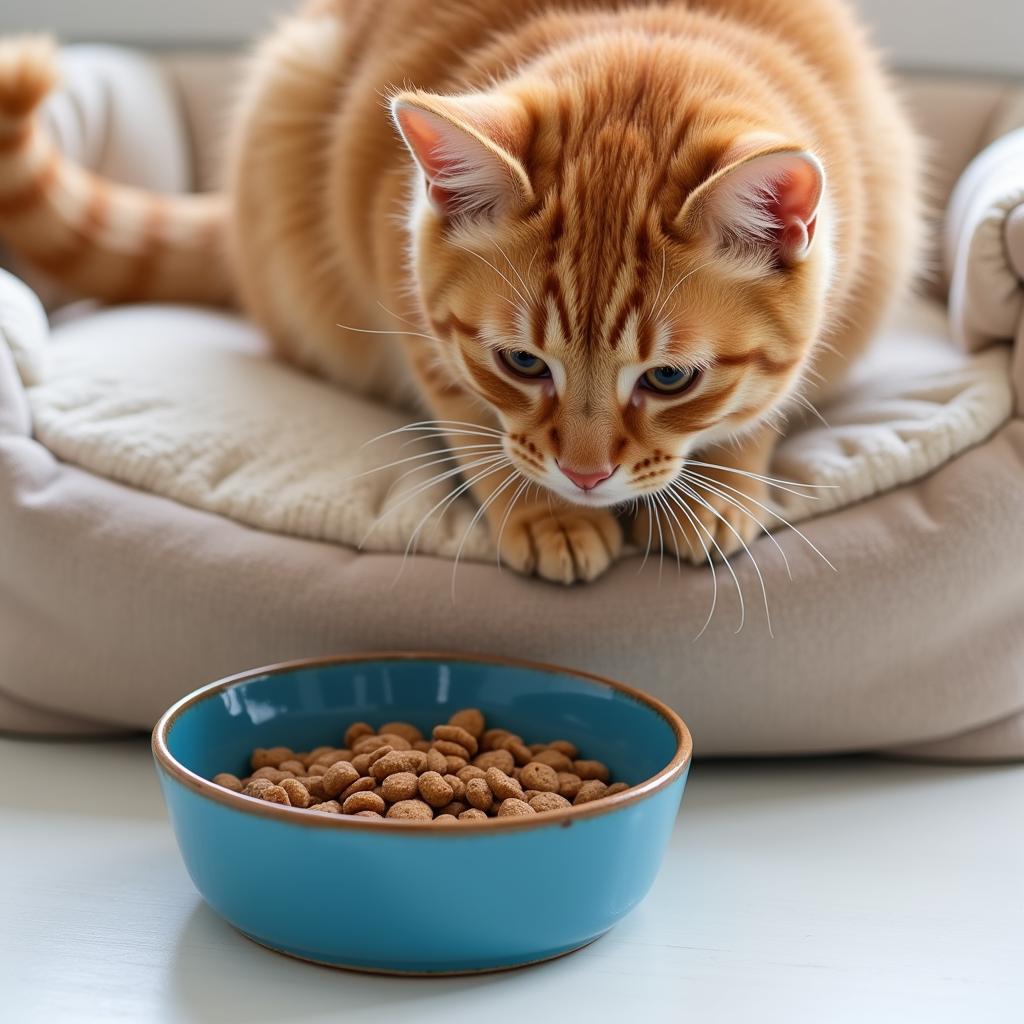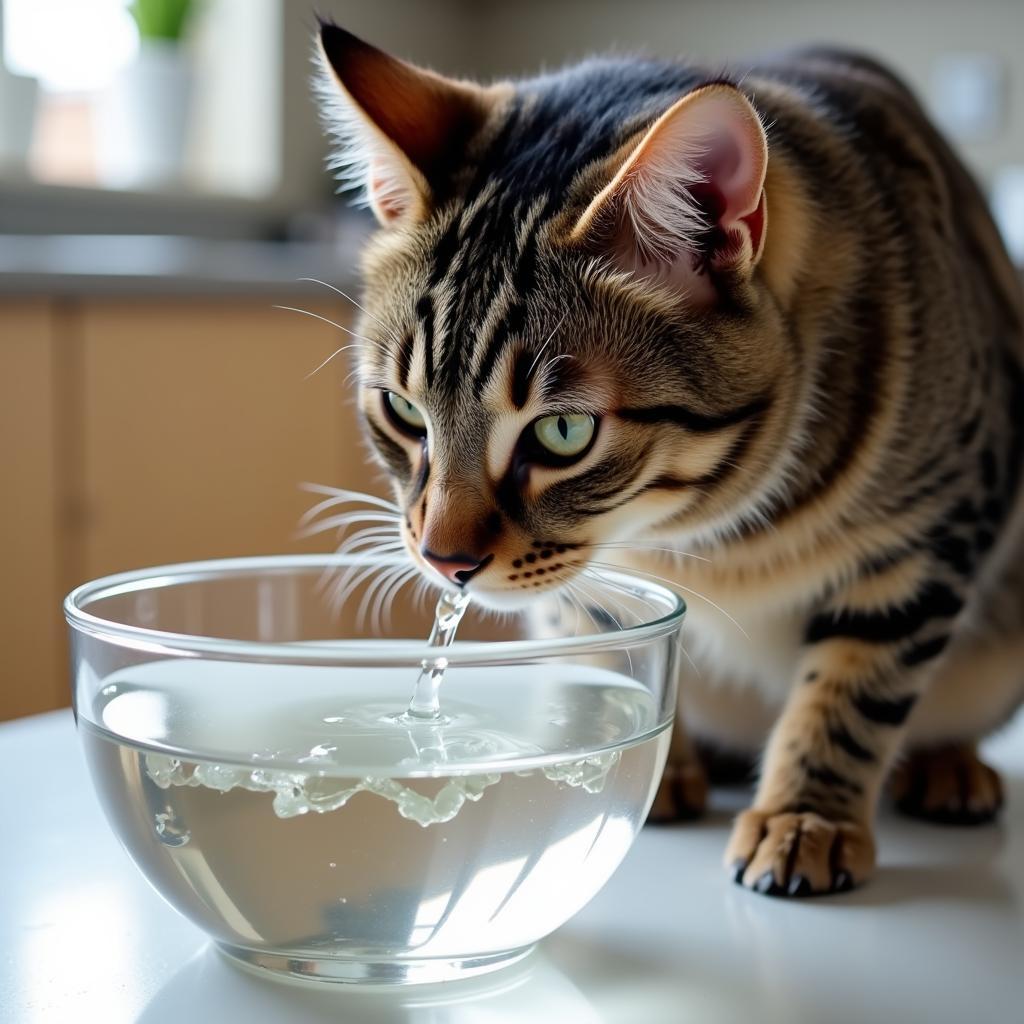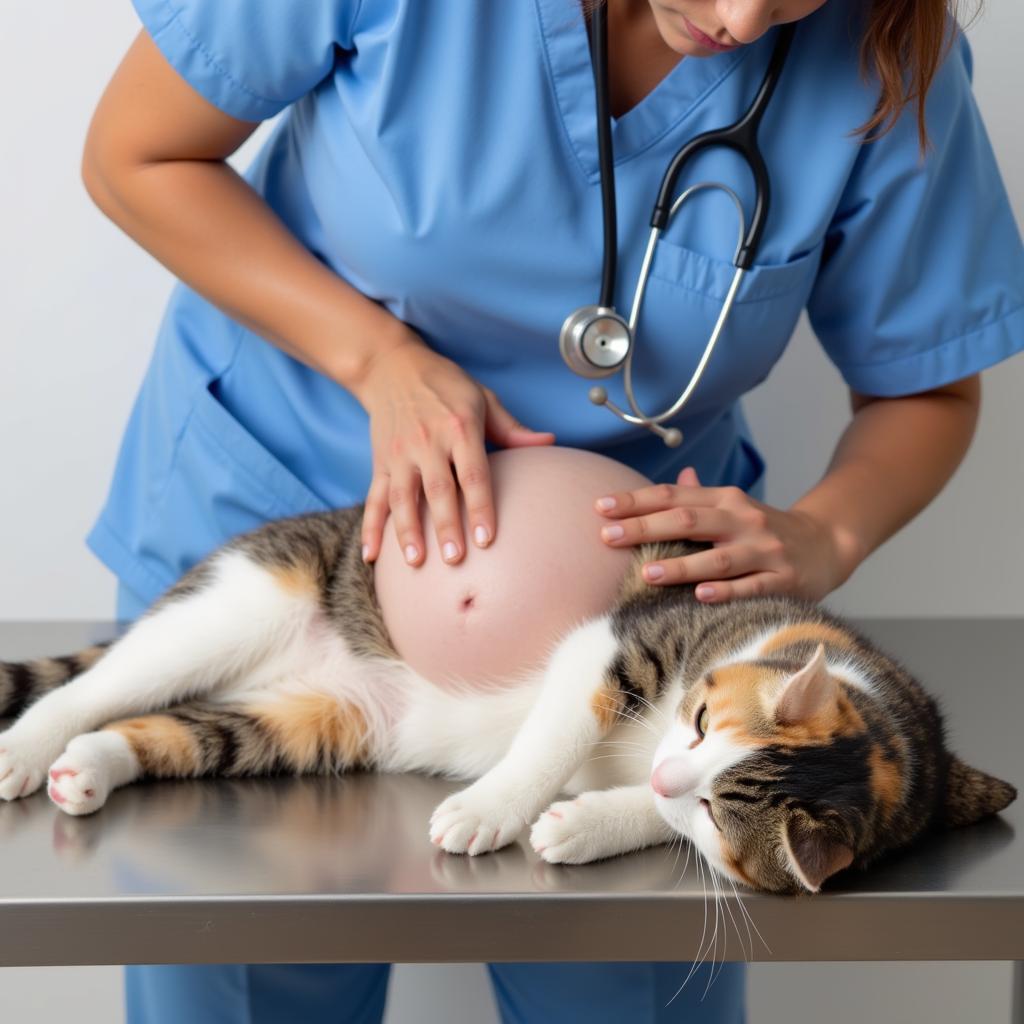A pregnant cat’s nutritional needs change significantly. Ensuring your feline friend receives the right nutrients during this crucial period is vital for her health and the development of her kittens. This guide covers everything you need to know about feeding a pregnant cat, from dietary adjustments to portion control.
Nutritional Needs of a Pregnant Queen
Pregnant cats, often referred to as queens, require a higher calorie intake than their non-pregnant counterparts. This increase supports the growth of the kittens and prepares the queen for lactation. As the pregnancy progresses, their calorie requirements increase gradually, peaking during the last few weeks.
- Increased Protein: Protein is essential for building tissues and supporting the kittens’ growth. Look for cat food with high-quality animal-based protein sources.
- Essential Fatty Acids: Omega-3 and omega-6 fatty acids are crucial for brain development and overall kitten health.
- Calcium and Phosphorus: These minerals are vital for bone development in the kittens.
- Vitamins and Minerals: A balanced intake of vitamins and minerals is essential for the overall health of the pregnant queen and her kittens.
 A pregnant cat eating from a bowl
A pregnant cat eating from a bowl
Feeding Guidelines for Pregnant Cats
Switching to a kitten food formula is generally recommended for pregnant cats. Kitten food is formulated to be nutrient-dense, meeting the increased demands of both pregnancy and lactation.
- Gradual Transition: Introduce the new food gradually to avoid digestive upset. Mix increasing amounts of kitten food with the queen’s regular food over a period of 7-10 days.
- Increased Portions: Start by increasing the queen’s food intake by about 25% in the first few weeks of pregnancy. Gradually increase the portion size as the pregnancy progresses. By the final weeks, she may be eating almost double her normal intake.
- Free Feeding: Consider allowing your pregnant cat to free feed, meaning food is available at all times. This allows her to eat small meals frequently, which can be more comfortable as her belly grows.
- Fresh Water: Ensure fresh, clean water is always available.
 Pregnant cat drinking fresh water
Pregnant cat drinking fresh water
What Foods to Avoid During Pregnancy
Certain foods should be avoided during a cat’s pregnancy:
- Raw Meat and Eggs: These can carry harmful bacteria like Salmonella and E. coli.
- Unpasteurized Dairy Products: These can also cause digestive issues.
- Certain Fish: Some fish, such as tuna, swordfish, and king mackerel, can contain high levels of mercury, which can be harmful to developing kittens.
Signs of Nutritional Deficiencies
Be watchful for any signs of nutritional deficiencies in your pregnant cat, such as weight loss, lethargy, dull coat, or decreased appetite. Consult your veterinarian if you notice any of these signs.
“A balanced diet is crucial for a healthy pregnancy in cats,” says Dr. Emily Carter, DVM, a board-certified veterinary specialist in feline medicine. “Ensuring your cat receives the right nutrients is an investment in the health of both the mother and her kittens.”
 Veterinarian examining a pregnant cat
Veterinarian examining a pregnant cat
Conclusion
Providing the right nutrition is key to a healthy pregnancy and healthy kittens. By following these guidelines and consulting with your veterinarian, you can ensure your pregnant cat receives the best possible care during this special time. Remember, a well-nourished queen is better equipped to nurture her kittens and enjoy motherhood.
FAQs
- When should I switch my pregnant cat to kitten food? Start the transition to kitten food as soon as you confirm the pregnancy.
- How much should I feed my pregnant cat? Gradually increase the portion size as the pregnancy progresses, allowing her to free feed if possible.
- What are the signs of a healthy pregnancy in a cat? A healthy pregnant cat will have a good appetite, maintain a healthy weight, and have a shiny coat.
- Can I give my pregnant cat supplements? Consult your veterinarian before giving any supplements.
- How often should I take my pregnant cat to the vet? Regular vet check-ups are important throughout the pregnancy.
- What should I do if my pregnant cat loses her appetite? Contact your veterinarian immediately if your cat shows any signs of illness or changes in behavior.
- What are some good brands of kitten food? Discuss with your veterinarian to determine the best brand for your cat’s individual needs.
Need support? Contact us at Phone Number: 0372960696, Email: TRAVELCAR[email protected] or visit us at 260 Cau Giay, Hanoi. We have a 24/7 customer service team.

